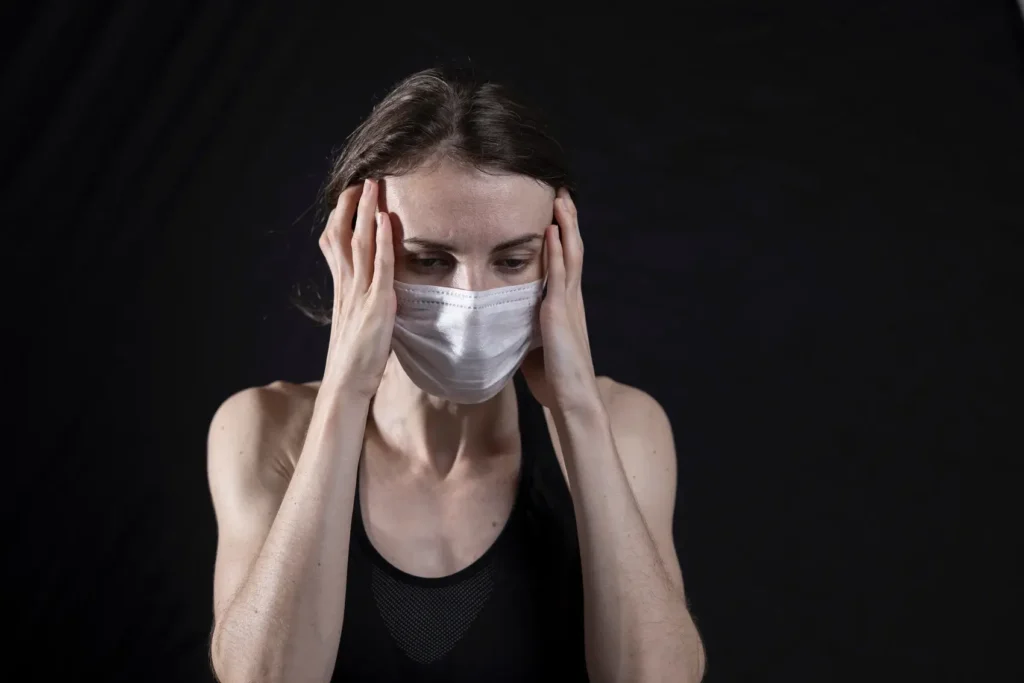“In order to make it to the light we must prevail the darkness.”
-WiL Turner
Depression and anxiety usually go hand in hand. In fact, an estimated 45 % of the population with one mental health issue meets the criterion for one if not both such disorders. A study claims that half of the people suffering from depression and anxiety suffer from other conditions as well. Although depression and anxiety may be attributed to similar causes, the treatments and symptoms may be different.
Knowing the causes of anxiety or depression prior to is essential to helping you live the healthy and happy life you deserve. Hopefully, reading this article will help you understand the symptoms of depression and anxiety more clearly so that you may proactively seek out the right support or wellness coach to help you.
What are the symptoms of these ailments?
Depression and anxiety have numerous overlapping symptoms. These include irritability, sleep deprivation, and reduction in concentration and the ability to focus. There are certain key identifiers that will assist in helping you distinguish the differences between the signs of depression and anxiety.
Symptoms of depression
It is very normal to develop emotions of sadness, loneliness, helplessness, and emotional disparage. But, if these symptoms continue for a long-time span (a week or several days), it may lead to more serious behavioral, physiological, emotional, and psychological issues.
Some of the most common behavioral, psychological, emotional, and physical symptoms of depression include the following:
● Reduction in energy levels, feeling sluggish, along with chronic fatigue, all of which occurs frequently
● Difficulty in concentration, recalling, and making decisions
● Experiencing aches, cramps, pains, and gastrointestinal problems without any apparent reason
● Sudden changes in weight
● Major changes or loss in appetite
● Difficulty in waking up early, sleeping, and oversleeping.
● Social disconnection and isolation from others
Emotional symptoms addedly include:
● Losing interest or pleasure even performing your favorite activities or hobbies
● Consistently feeling sad, anxious, or empty
● Feeling pessimistic or hopeless
● Emotional irrationality
● Persistent anger, restlessness, and irritability
● Developing a feeling of helplessness or worthlessness
● Feeling guilty without any reason
● Repetitively thinking about suicide or death
Symptoms of anxiety

A person may experience anxiety, a sense of insecurity, distrust, or fear at any time. It is not unusual to experience these emotions in combination while making important decisions or interacting with others socially. Chronic depression and anxiety might be disastrous. They are causing strain on one’s ability to nurture healthy relationships or to think rationally, thereby impacting your normal daily routine or functioning.
Some of the most common behavioral changes and physical symptoms of anxiety include the following:
● A feeling of tension in your muscles
● A very fast heartbeat or hypertension
● Difficulty in sleeping (Insomnia) that is inclusive of restlessness and unsatisfying sleep
● Grinding teeth
● Persistent feeling of fatigue
● Restricted concentration levels
Some other emotional symptoms of anxiety. are inclusive of the following:
● Dread
● Panic attacks
● Persistent feeling of fear or worry
● Feeling on the edge
● Restlessness
● Irritability
Identifying the signs of anxiety depression
Not all individuals may be aware of what is normal for them. If you find yourself experiencing any symptoms or feelings that are not typical or if you find something is off, it might indicate that you might need some support. Seeking the professional guidance of a wellness coach, physician or therapist is highly suggested. Contact your healthcare provider. They will help you to find the right solutions best for you. It is extremely crucial to pay close attention to how you are feeling. It will assist you in treating yourself at an early stage of depression or anxiety and proactively treat the symptoms before these become chronically severe or detrimental.
There are multiple online resources and diagnosis techniques that will help you. These tests will help you better understand what is happening to you. However, these tests cannot replace a professional doctor’s or wellness coach’s diagnosis. Psychological and emotional wellness professionals can assess the following most popular health tests for depression and anxiety include:
● Testing for anxiety
● Testing for depression
● Testing for depression and anxiety
How can you manage these symptoms?
Apart from professional treatment from your doctor, or wellness coaching professional, the following strategies might also help you relieve yourself from depression or anxiety.
It is significant to remember that these tips might be effective and helpful for every individual. The core motive behind these tips is to provide you with a series of options to take care of yourself proactively. These will enable you to work together to overcome the onset of various diseases to some extent.
The following management tips for tackling these issues include:
● Allow your body to experience and feel what is happening inside. Do not forget that depression and anxiety are not a result of a personal failure. Hence, none of this is your fault.
● Perform activities that you can control—for instance, exercise or physical activities
● Yoga or meditation
● Spending quality time with loved ones or friends.
● Decluttering your surroundings, cleaning, making your bed, or doing the laundry
● Try sticking to a healthy and timely sleeping schedule.
In conclusion
It is extremely crucial to identify the symptoms of depression and anxiety as soon as possible to ensure that you can treat them beforehand. You no longer have to deal with unusual thoughts, feelings, and other symptoms of depression and anxiety alone. There are a variety of professional medical professionals and support groups out there to help you. For example, ableto.com. Not forgetting that the best way of treating these conditions is to manage them at their early stage. Looking for the most appropriate treatment might be time-consuming.
Visit livingwellwithwil.com to read more about similar blogs. Nurturing healthy and happy relationships with your family and friends is important. Improve the way you think, look, feel, socially interact and live. Subscribe to the Living From Within blog and podcast at Living Well With WiL today. You are not alone! Be healthy. Be happy, always! Keep spreading and sharing those smiles.




